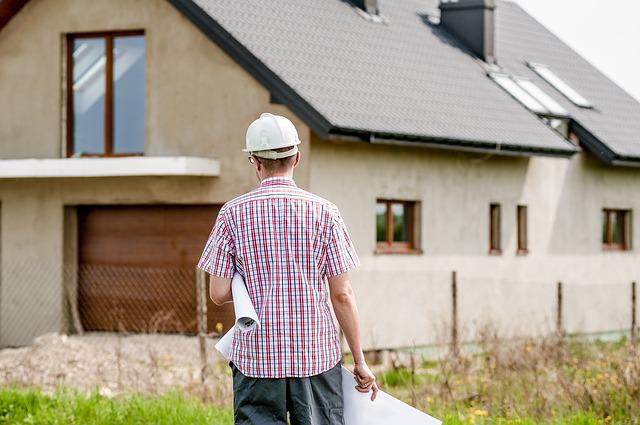Decision: Build New Home Vs Extend Current Home
June 14, 2022If you’re thinking of moving or making changes to your existing home, you might be wondering what is the cost difference is between building a new home and extending the current one. Read on to discover the pros and cons of each. A new home can be a much more affordable option, but it’s important to weigh up the pros and cons of each. Building a new home will also require a bigger budget than extending your current home.
Cost of building a new home
The cost of building a new home can be cheaper than extending your existing one, but the latter will add on extra space to your house. A bump out is an expansion of a room or part of the home, typically costing between $10,000 and $50,000. Outside additions, such as patios, can cost $3,200 to $9,500, with the average cost being $6,400.
The average cost of a building addition is $46,000, but this varies widely, depending on the type of addition you’re planning. Adding on a floor to a ranch-style home can add approximately eight hundred square feet. This is cheaper than buying a new home, but you must pay for site preparation and utilities. A seamless transition will help keep the costs down, as will major renovations that alter the interior of the home.
The most cost-effective way to extend your house is to build outward into your yard. Depending on the size of your property, you can add up to two stories to your existing home. The cost of extending a home is about $90 per square foot, but the construction process will require excavation and a new foundation. The downside of building outward is that you have to spend a lot of time and money relocating utilities. However, you can also save money and time by building upward, as this will not increase the footprint of your existing house.
The cost of building a new house is much lower than that of building it from scratch. In most cases, building out costs about $140 per square foot, whereas adding a second-story room can be more expensive. This is because building out requires more work, such as adding a basement, strengthening walls, and bringing plumbing and electric wiring up to the second level of the home.
In addition, buying a new house is more expensive, even though you can get a brand-new house for about $600 per square foot. If you’re lucky, you might find a house that suits your needs and fits your budget. However, if you’re looking for a fresh start, a new home is probably not exactly what you want. But you can’t expect a new house to look like your dream home.
Adding on to your existing home is the most convenient option if you want more space. A home addition will add more square footage to your property and increase its value. There are estimated costs for this project depending on the size of the addition and the quality of materials and labor. A typical home addition project will cost between $140,000 and $200,000, with permits and professional services accounting for about ten to fifteen percent of the total cost.
Cost of extending a home
The cost of extending a home will depend on the extent of the work, including any groundworks. While most builders don’t separate the expense of groundworks, they are often required. This can add up to $250. Groundworks are important for structural integrity and safety, but they’re also difficult to separate from the price of the final build. Additional expenses may include the cost of moving drainage systems or tree roots. These expenses can quickly add up and make the cost of the project appear too high.
The basic cost of an extension ranges from $1400 to $3600 per square metre, depending on the complexity and location of the work. A small laundry extension can cost as little as $6000, while a new bathroom can run you around $10,000. Adding a conservatory or extending the front of your home can cost anywhere from $10,000 to $30,000. Be sure to hire the right professionals for your project, as they’ll help you ensure the highest quality work. Some building professionals may include architects, structural engineers, and surveyors. Be sure to check their credentials, as well.
While the initial costs are lower, plumbing, cabinets, and lighting fixtures will increase the overall costs. Adding new rooms to your home can also result in higher insurance premiums. You should also keep in mind that the length of the extension will depend on the complexity of the project. However, it’s possible to save money on the cost of an extension if you’re prepared to do the work yourself. Just be sure to have enough time to research and plan properly!
The cost of an 800-square-foot extension will vary greatly. If you want to add a second story, the cost will be around $25,000 to $30,000. In addition, you’ll need to add additional support for the second story and possibly even build posts for the extra height. You should also factor in other expenses, such as landscaping and roofing. The total cost of the project will depend on the size of the addition and the design of the space.
The cost of a two-story, 400-square-foot extension is usually $120,000. This includes the construction of plumbing and electrical systems. The extension is typically large enough to accommodate a full-sized master suite, including a large bedroom, walk-in closets, attached bathroom, and dressing area. Plumbing and other special requirements may add to the overall cost. Once the project is complete, the costs can be reduced.
While the cost of extending a home can be a large part of the overall cost, it is far more affordable than the cost of moving. The difference between the two can be as much as PS30,000. Then again, the added space is more useful than the extra space. For instance, if you want a laundry room or additional storage, a bump out is a great way to add space. This is also the perfect option if you have limited space or want to add a bathroom or a kitchen.
Cost of moving a home
Considering the costs involved with relocating can be daunting, but it’s also a good idea to plan ahead. Purchasing a new home may be more costly than extending an existing one, and the costs of moving a house can be recouped only over seven years. However, there are also some benefits to building on top of your current home.
One of the biggest benefits of building on your existing property is that you can enjoy all the benefits of a new property, while retaining the character and appearance of your current property. Building a new home is usually cheaper than extending an existing one, but the added expense of moving is often a major concern for many homeowners. The extra cost can easily be offset by the potential for future value appreciation.
Aside from saving money, extending your current home can also give you more living space without the hassle of moving. The biggest benefit of extending a home is that you don’t have to move and will be able to choose the design and materials of your new home. Furthermore, if you already have equity in your current home, you can refinance the mortgage to finance the extension, making the project more affordable.



